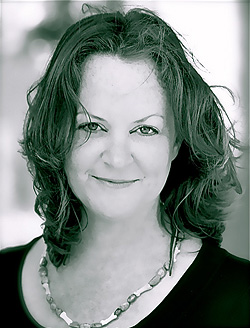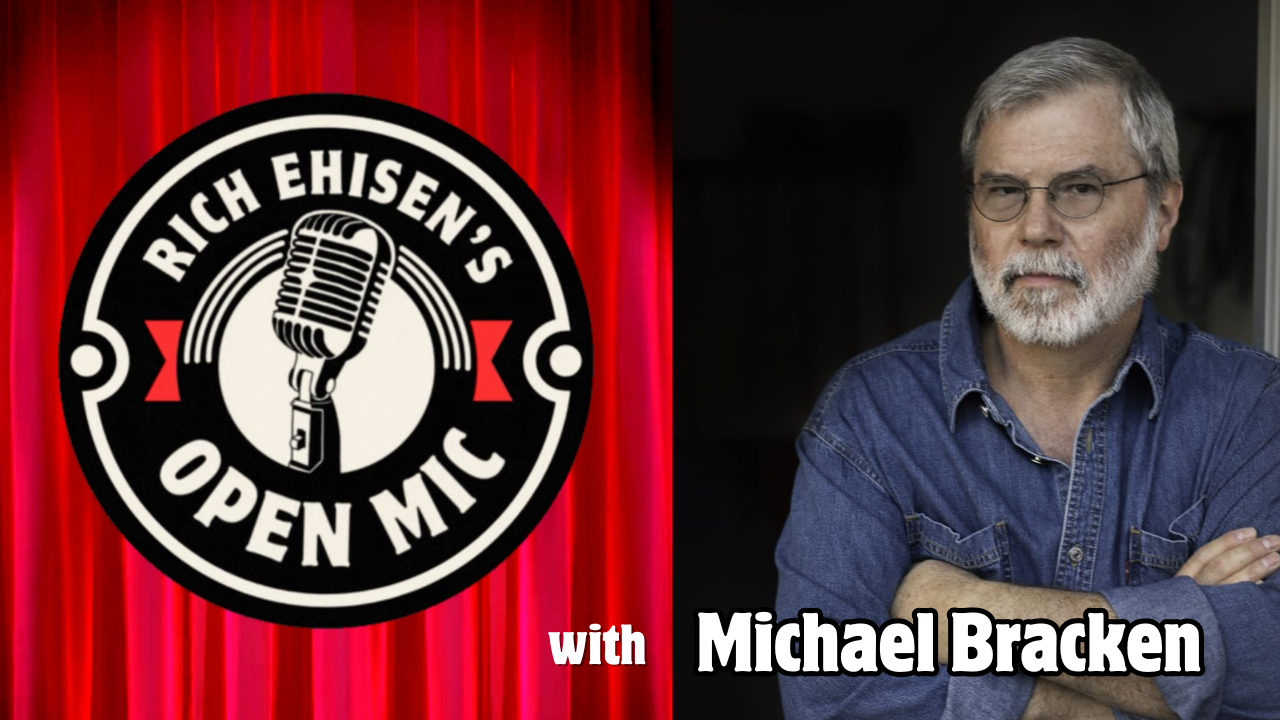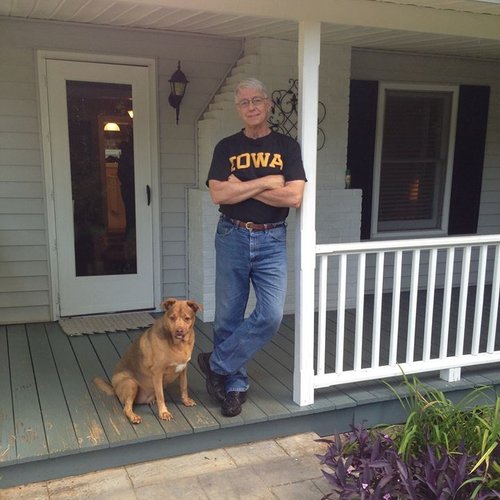 Mystery author John Carenen knows a thing or two about…well, a lot of things, including how to craft a good story. The man behind the Thomas O’Shea mystery series, he also knows firsthand the joys and pitfalls of publishing with a small press, self-publishing and the need for writers to continually push themselves toward new work and bigger challenges. We sat down with him recently to talk about how he incorporates dark humor into his work, the struggle to find an agent and the bigger struggle to market yourself as an indie author.
Mystery author John Carenen knows a thing or two about…well, a lot of things, including how to craft a good story. The man behind the Thomas O’Shea mystery series, he also knows firsthand the joys and pitfalls of publishing with a small press, self-publishing and the need for writers to continually push themselves toward new work and bigger challenges. We sat down with him recently to talk about how he incorporates dark humor into his work, the struggle to find an agent and the bigger struggle to market yourself as an indie author.
Open Mic: Tell me about the Thomas O’ Shea series. What was the inspiration for your character Thomas O’Shea?
Carenen: It started out as a stand-alone. I had been reading an article where Stephen King was asked how he gets started. He said he does this “what if” process: what if you woke up in a little village in Montana and everybody was dead except for you? And so I thought about what would be the worst thing that could happen to me, and if that happened what would I do? And I realized the worst thing that could happen to me would be to lose my wife and two daughters. I live in South Carolina but I’m from Iowa and I thought if that happened I would probably just go home and try to heal. Kind of like the Ernest Hemingway series of Nick Adams short stories, where he was so damaged and traumatized from the war that going back home and simply going fishing by himself and being able to open a can of beans was therapeutic. So the story developed from there, starting with John O’Shea losing his wife and daughters in a terrible car accident.
Open Mic: What was the development process for this character like? Is he anything like you?
Carenen: Thomas O’Shea is very different from me. For one thing he’s a tough guy and I’m not. But as part of his healing he’s bought property out in the country and he’s going for a drive and he sees what looks like a farm accident. H doesn’t want to get involved, but a bloody young women comes running down the lane toward him screaming. He considers just taking off, but he stops and goes to help her. Well it turns out it’s the bloody farm accident that turns out not to be an accident. So the story is about how he digs into the details of the accident and how the more questions he asks, the more people try and stop him. Previous to being married, he had gone to SEAL training twice, but each time he had ended up with a broken leg so that he couldn’t finish. But he had made friends with a guy who did and he ended up going on some privately funded black ops exercises where there was a good bit of violence. So he had some skills, but then he met his wife and went back to school and started a family and they were doing well until they were killed. So he gradually gets pulled back into using some of his skills. The book was intended to end with him getting his heart broken. I was pleased with it, but people seemed to need to know more about this guy so I wrote a second book and then a third and finally finished the fourth in the series. They’re all similar in that he comes across something in his normal day and it looks suspicious and he starts to check it out and people try to stop him. He’s got a dark sense of humor. He’s kind of a wise guy and he’s tough and he’s got a code and he tries to make things work that aren’t working.
Open Mic: Thomas O’Shea definitely has a dark sense of humor, which plays a large role in the series. Does writing humor come naturally or did you have to develop that? 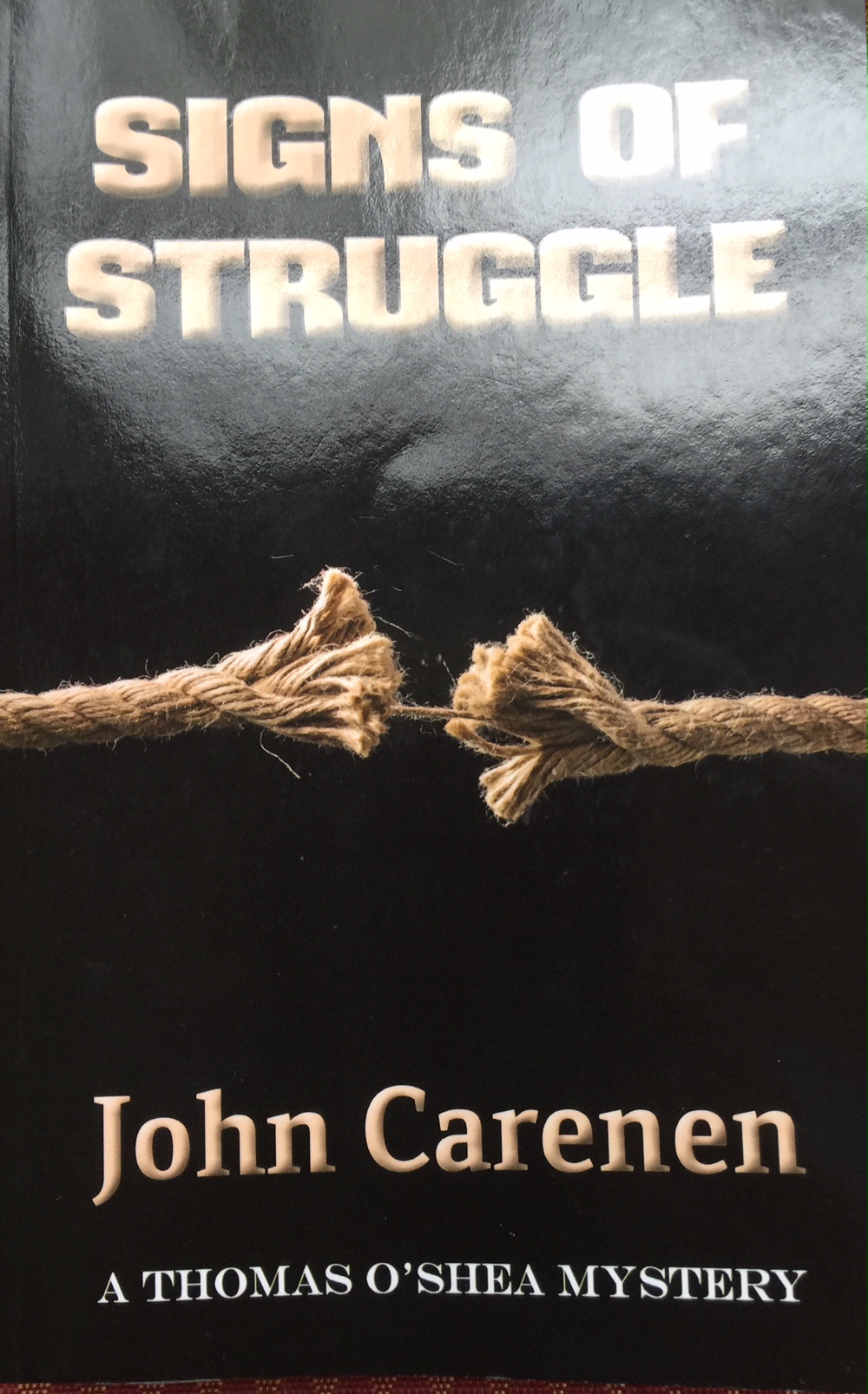
Carenen: That’s an interesting observation. I was always told growing up that humor was the hardest thing to write, but I didn’t find that to be true for me. I sold several articles to Reader’s Digest where I just make fun of myself. If you make fun of somebody else, that’s cruel. But if you make fun of yourself everybody can identify with it. So even back in high school when I wrote columns for the school paper, one was an anonymous satirical column that was just kind fun.
Open Mic: Most writers dream of writing a book, getting an agent that sells said book to a Big Five publisher and then write more books and counting their money. It rarely works out that way for most of us. How has your experience been?
Carenen: It was humbling. I had some of those dreams too, but I had a terrible time getting an agent. I’ve come real close a couple of times, and at the last moment they decided they were going to go in a different direction, kind of letting you down easy. I’m at the point now where if that happens, great. If it doesn’t, I don’t lay awake at night wondering how I missed the golden ring of American letters.
Open Mic: Tell me a little about what it’s been like with Neverland Publishing.
Carenen: They published the first two books. They’re really nice people and I like them on a personal basis, but their publishing extends only to the publication. They do nothing as far as promotion. They also published the second novel, which is really my favorite, and said they would publish the third one. I sent them that one, and it must have been two years, I couldn’t get an answer from them. I think they were overwhelmed. We parted friends, let me put it that way. We wished each other well and I ended up buying back the rights to the first two novels and, because I could feel the need in the series to get the third book out in a timely fashion and that had kind of slipped away, I published the third one as a hybrid with the local bookstore operation that was very professional. What I would like to do now of course is to get an agent and let them take it to a publishing house and develop a relationship, not just with the Thomas O’Shea series but with some other pieces I’m doing that I’m also pleased with.
Open Mic: Some indie authors work on the premise that their book might later get picked up by a standard publishing house. What is your thought on this?
Carenen: That’s a good question. I’ve got a lot of enthusiasm for other work I’m doing. I’m working right now on what you might call a literary novel, which is based on a true story. My wife and I used to work with emotionally disturbed teenagers up in North Carolina, and we had a 16-year-old kid that told us he had seen a murder when he was home on a weekend. Well the young man was given to hyperbole, but he was also almost a feral child and when he was home he would wander up into the mountains. One night he said he saw two men during a big rainstorm kill another man and throw him into this creek. I of course took that with a grain of salt. Well, it wasn’t too much later that a detective came by the group home and wanted to interview this kid. I sat in on the interview and he didn’t tell him anything. Naturally he had suspicion of law enforcement, but this murder had actually happened and somehow they had thought he had maybe seen it because he was known to roam those hills. Nothing ever came from that, but I think it might make an interesting story, not with a kid but a man that’s pretty much a recluse that likes to hike the mountains. He has a cabin way back off the road and he sees the same thing and decides to leave it to the authorities. He figures they’ll figure it out eventually, but he felt like if he gets involved it won’t turn out well. So I’m working on that right now, his response to the desire to do the right thing. So I’m having a good time with that.
Open Mic: Marketing is usually the toughest part for authors. How has the marketing been for you? 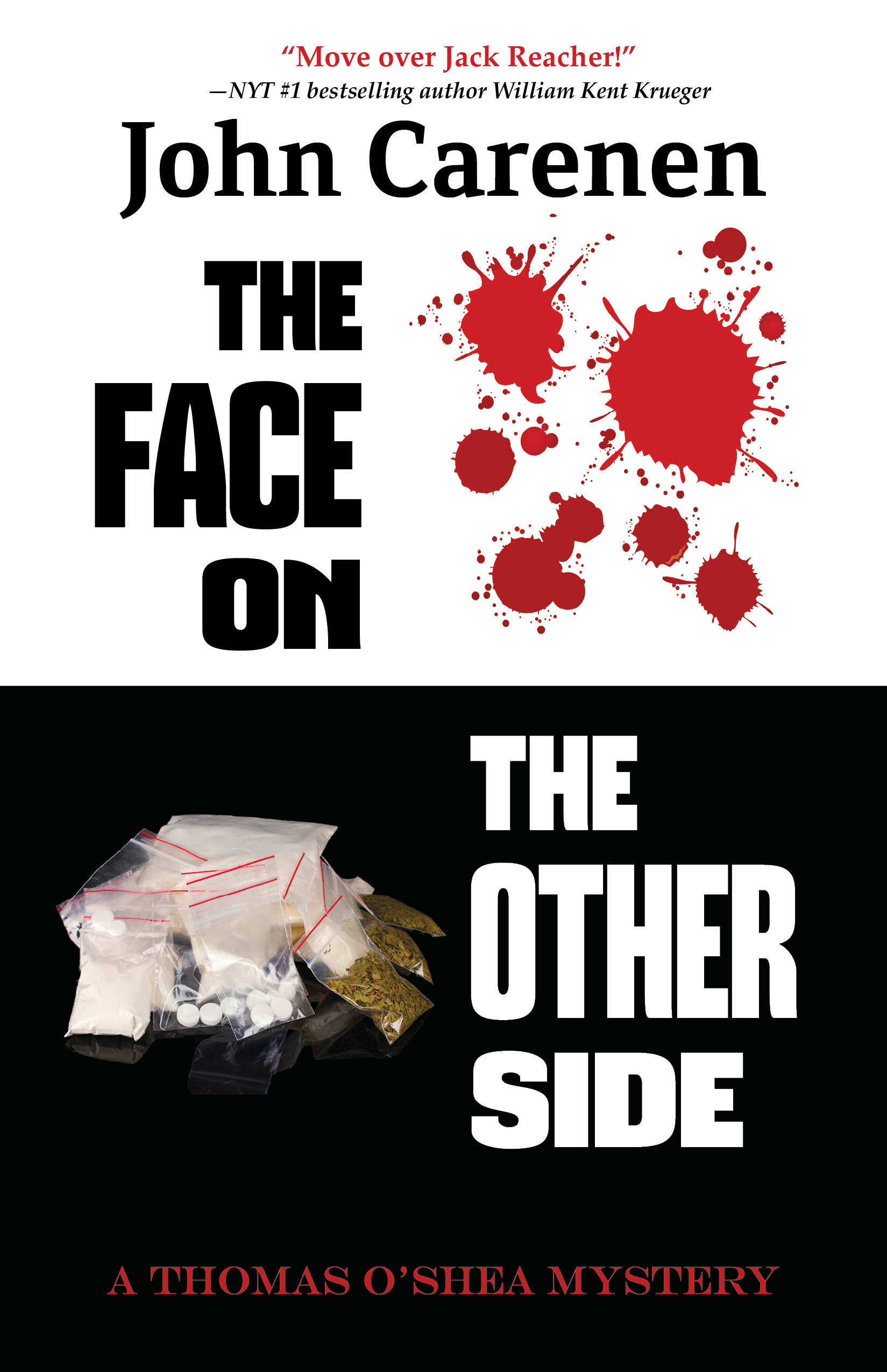
Carenen: Well, it was made easier by the fact that my daughter (and former Open Mic guest), Rowe Carenen, was already a book concierge. She’s taken care of book signings and all my social media things and getting me on panels around here, western North Carolina and upstate South Carolina. I’m satisfied with that, being pretty much of an introvert. I don’t have any marketing skills whatsoever. The only thing is that I believe I’m writing good books and that pretty much sustains me. I think I’ll, what will happen is after I’m dead people will realize there’s this under the radar genius out there, then my family will benefit
Open Mic: Did you use a professional editor before you submitted?
Carenen: Rowe does that. She’s an excellent editor. I’m also in a writers group that meets here at our cottage twice a month. There’s some really fine writers there and I get excellent feedback from them. I don’t always accept it, but I get really different perspectives.
Open Mic: Many traditionally published authors look down on self-published authors, which I find it a little off putting to be honest with you. Have you run into any attitude about how you’ve chosen to publish?
Carenen: I have to confess to having had that attitude myself. I remember when I was younger I thought I would never self-publish because they were all trashy and not well done and anybody with a typewriter and paper could get published. It turns out some of that was true but it’s also evolved so much. I’ve seen some really fine work so I’ve kind of backed off that and I’m just skeptical sometimes but I’m not painting with a broad brush that these are all no good.
Open Mic: Social media is both a boon and the bane of many writers. What are your thoughts on social media? Do you use it much? And do you find it helps you sell more books?
Carenen: I think the jury is still out on that. I like Facebook because I keep in touch with a lot of friends old and new that way, and different writers as well. But I don’t know if that helps sell books or not.
Open Mic: Do you outline your books or are you more seat of the pants?
Carenen: I’m a seat of the pants person. I can’t stand outlines because if you do an outline then it’s like the outline is telling you what to do instead of the other way around. But I know one or two authors that outline but it just doesn’t work for me because if you do that it seems like you keep yourself from being surprised by characters and situations, which happens all the time for me.
Open Mic: Which do you start with: plot or characters?
Carenen: I have a general idea of what I want to have happen. I did the “what if” stuff a lot and in the second book. O’Shea can’t sleep at night and so he takes a stroll into town. There’s a bridge in the middle of town and he’s standing there looking down at the water and it’s peaceful and then he sees a body. I like that idea for a starter. It turns out it’s an Ojibwe Indian girl and later on it turns out to be other things and pretty soon the story takes off in sometimes surprising ways.
Open Mic: What is your writing process like? Do you target a certain number of words or pages per day?
Carenen: No, I’m not that organized or disciplined. I try to write every day but some days I don’t. The O’Shea books are usually around 320 or 330 pages. I don’t do that deliberately and they turn out to be about thirty chapters and with what I’m writing on now, I’m deliberately trying to make it real minimalist, very succinct and so I expect it to be half that size, 180 pages maybe. I want to force myself to keep it within that page number because that will force me to not waste words which is a completely different style for me.
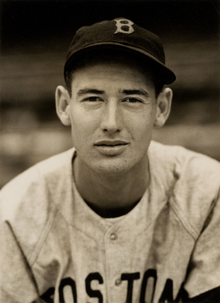 Open Mic: I like to end with a fun question. I can put you together with any one of the following three people. Who do you choose and why: the famous Iowa- born author Bill Bryson, the greatest hitter who ever lived, Ted Williams or former South Carolina governor and current US Ambassador Nikki Haley? Who would you choose and why?
Open Mic: I like to end with a fun question. I can put you together with any one of the following three people. Who do you choose and why: the famous Iowa- born author Bill Bryson, the greatest hitter who ever lived, Ted Williams or former South Carolina governor and current US Ambassador Nikki Haley? Who would you choose and why?
Carenen: There’s no question it would be Ted Williams. He was my hero when I was a kid. I’ve got pictures of him around my writing area where he is standing there waiting for his turn at bat. I think he was brilliant.


